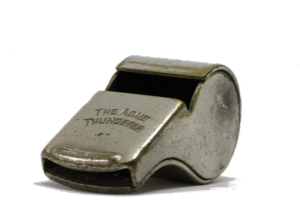 Our attorneys represent people and businesses in all aspects of contract law, including contract negotiations, drafting, review and contract litigation. One of the more complex areas of contract law if the interplay of contract and tort law when fraud and contracts intersect. While this issue is complex, there are several basic rules and principles.
Our attorneys represent people and businesses in all aspects of contract law, including contract negotiations, drafting, review and contract litigation. One of the more complex areas of contract law if the interplay of contract and tort law when fraud and contracts intersect. While this issue is complex, there are several basic rules and principles.
The Economic Loss Doctrine – Fraud in the Performance of a Contract
New Jersey contract law adheres, if somewhat loosely, to the “economic loss doctrine.” What this rule says is that after two parties enter into a contract governing their relationship, their remedies for economic loss are limited to breach of contract. They cannot sue for torts (civil wrongs) such as fraud. Thus, as a hypothetical example, after a contract is signed for ABC Company to pay XYZ, LLC $10,000 for the manufacture and delivery of ten motors, if XYZ takes the money and then keeps telling ABC that the motors are coming “soon” knowing full well it is never going to deliver, ABC is limited to suing XYZ for breach of contract when the motors aren’t delivered. ABC cannot sue for fraud in the performance of the contract. This is the heart of the economic loss doctrine. The practical difference is that punitive damages are available if a party is found guilty of fraud, but punitive damages are not available for breach of contract.
 New Jersey Lawyers Blog
New Jersey Lawyers Blog


 One of the areas which counterintuitively generates among the most questions in New Jersey employment law is teachers’ tenure. Although teacher tenure dates back over a century, tenure is still an area of the law which generates much controversy and litigation. The Appellate Division of New Jersey’s Superior Court recently issued a decision in one such area of contention in the case of
One of the areas which counterintuitively generates among the most questions in New Jersey employment law is teachers’ tenure. Although teacher tenure dates back over a century, tenure is still an area of the law which generates much controversy and litigation. The Appellate Division of New Jersey’s Superior Court recently issued a decision in one such area of contention in the case of  What is a Restrictive Covenant?
What is a Restrictive Covenant? enacting the
enacting the  The United States Supreme Court issued a major decision on tolling the statute of limitations on state law claims while the case is in federal court which has significant impact on New Jersey employment litigation. In the case of
The United States Supreme Court issued a major decision on tolling the statute of limitations on state law claims while the case is in federal court which has significant impact on New Jersey employment litigation. In the case of  When you purchase a liquor license in New Jersey, as a Buyer you must be approved by the State of New Jersey Alcoholic Beverage Commission and the Municipality where the business operates. This process is detailed and time consuming. it must be started as soon as possible by the Buyer. You will need to obtain a Person to Person Transfer of the liquor license. Unless and until the municipality issues a resolution approving of the transfer of the liquor license, the current license holder must operate the business.
When you purchase a liquor license in New Jersey, as a Buyer you must be approved by the State of New Jersey Alcoholic Beverage Commission and the Municipality where the business operates. This process is detailed and time consuming. it must be started as soon as possible by the Buyer. You will need to obtain a Person to Person Transfer of the liquor license. Unless and until the municipality issues a resolution approving of the transfer of the liquor license, the current license holder must operate the business. Both New Jersey’s
Both New Jersey’s  In the case of DiFiore v. CSL Behring, LLC, a former pharmaceutical employee brought an action in the District Court for the Eastern District of Pennsylvania against her former employer for retaliation in the form of a wrongful, constructive discharge. In that case, the employee specifically brought claims under the federal False Claims Act (“FCA”)
In the case of DiFiore v. CSL Behring, LLC, a former pharmaceutical employee brought an action in the District Court for the Eastern District of Pennsylvania against her former employer for retaliation in the form of a wrongful, constructive discharge. In that case, the employee specifically brought claims under the federal False Claims Act (“FCA”)  Our employment lawyers represent many honorable New Jersey employees in disputes with their governmental employers.
Our employment lawyers represent many honorable New Jersey employees in disputes with their governmental employers.